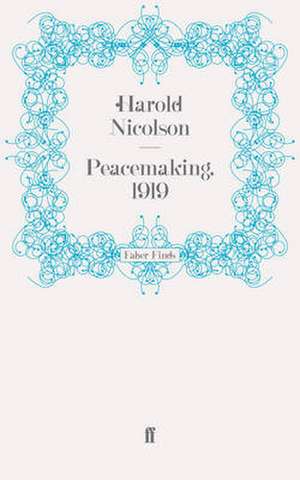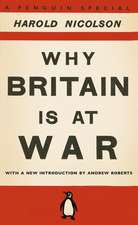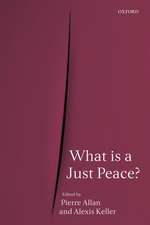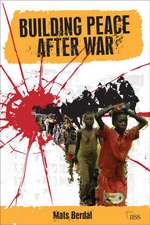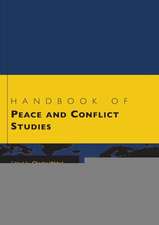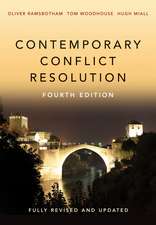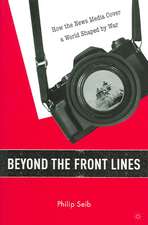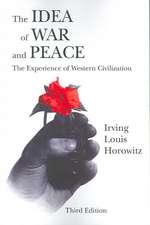Peacemaking, 1919
Autor Harold Nicolsonen Limba Engleză Paperback – 14 apr 2011
Harold Nicolson was a member of the British delegation. His book is in two parts. In the first he provides an account of the conference, in the second his diary covering his six month stint. There is a piquant counterpoise between the two. Of his diary he writes, 'I should wish it to be read as people read the reminiscences of a subaltern in the trenches. There is the same distrust of headquarters; the same irritation against the staff-officer who interrupts; the same belief that one's own sector is the centre of the battle-front; the same conviction that one is, with great nobility of soul, winning the war quite single-handed.' The diary ends with prophetic disillusionment, 'To bed, sick of life.'
As a first-hand account of one of the most important events shaping the modern world this book remains a classic.
Preț: 189.96 lei
Nou
Puncte Express: 285
Preț estimativ în valută:
36.35€ • 38.87$ • 30.31£
36.35€ • 38.87$ • 30.31£
Carte tipărită la comandă
Livrare economică 14-21 aprilie
Preluare comenzi: 021 569.72.76
Specificații
ISBN-13: 9780571256044
ISBN-10: 057125604X
Pagini: 334
Dimensiuni: 140 x 216 x 19 mm
Greutate: 0.43 kg
Editura: Faber and Faber
ISBN-10: 057125604X
Pagini: 334
Dimensiuni: 140 x 216 x 19 mm
Greutate: 0.43 kg
Editura: Faber and Faber
Notă biografică
Harold Nicolson (1886-1968) was a man of manifold talents: a diplomat, politician, journalist, broadcaster, historian, biographer, diarist, novelist, lecturer, literary critic, essayist and gardener. Perhaps most celebrated for his Diaries (reissued by Faber Finds in their original three volumes), they run the risk of obscuring the excellence of his other books. He wrote over thirty: Some People, Sir Arthur Nicolson, Peacemaking, 1919, Curzon, The Last Phase, 1919-1925, and The Congress of Vienna are all being reissued in Faber Finds. Harold Nicolson was educated at Wellington and at Balliol College, Oxford. He joined the Foreign Office in 1909, and in 1913 married the writer Vita Sackville-West. He was a member of the British delegation to the Versailles Peace Conference in 1919. He left the Foreign Office in 1929, and in 1935 he was elected National Labour Member of Parliament for West Leicester. In 1940 he was appointed a Junior Minister in Churchill's wartime government.In his eulogy, John Sparrow, with affectionate aptness, described Harold Nicolson as 'a nineteenth-century Whig leading an eighteenth-century existence in the twentieth-century.'
